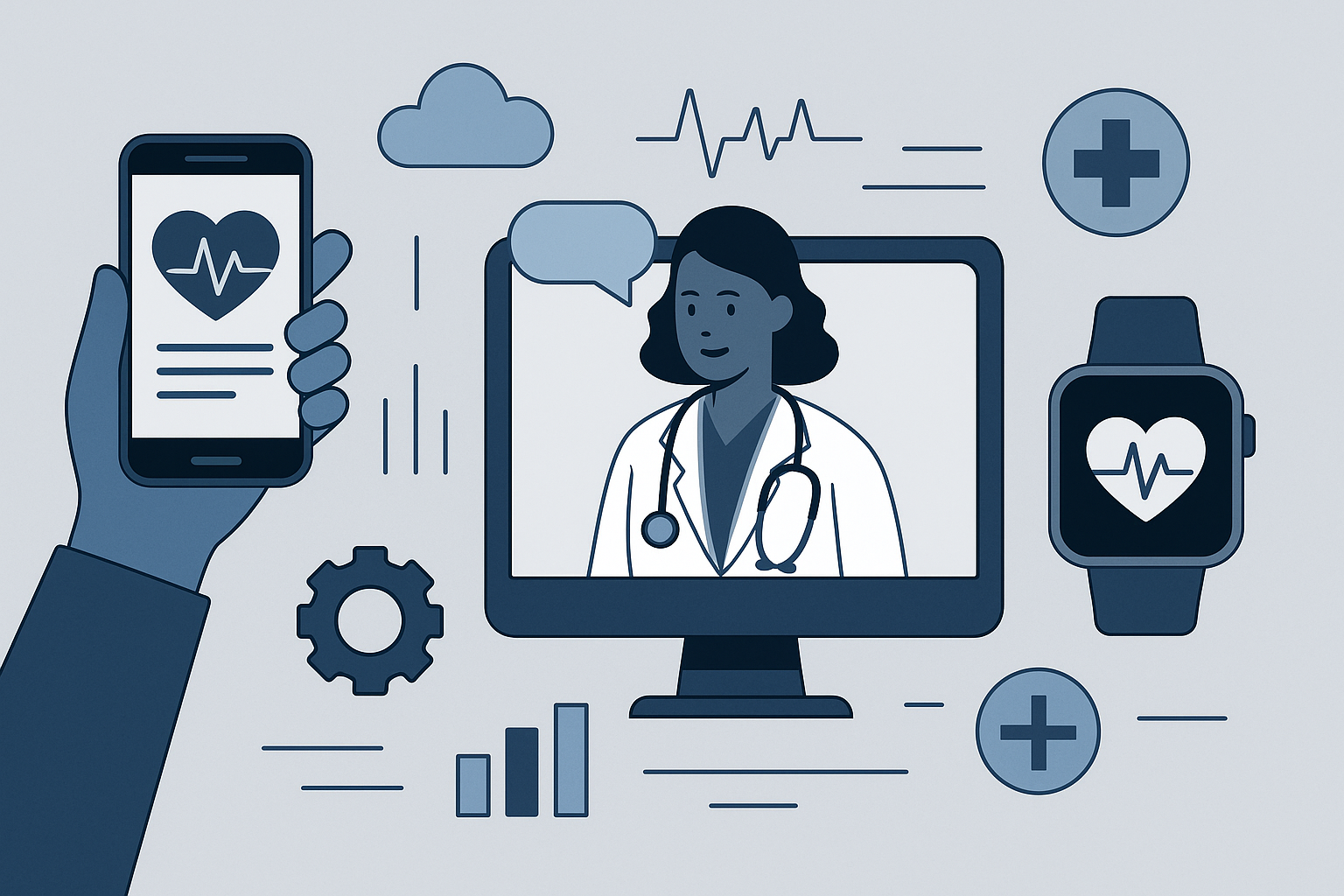Author: Oluwatosin Idowu
If you’ve ever interacted with mobile health applications, spoken to a doctor through a screen or used wearable devices like the Apple Watch, then you get the idea of digitalization in healthcare. This tech integration supports the broader use of electronic health records (EHRs), and it’s not just about hopping on a futuristic trend.
Digitalizing the health system is about efficiently redesigning how we collect health information, so it’s easy to analyze and share to support research. After all, data is the currency of research, and strong research capacity is the backbone of any resilient health system.
At risk of sounding like paid marketing agents, the Flo period tracking app is a good case study supporting the relevance of digitizing healthcare for research. This mobile app is designed to help women track and understand their menstrual cycles, fertility and pregnancy.
Do you know that many gynecological illnesses affecting women in Nigeria are underdiagnosed and undertreated? Endometriosis can take up to a decade to diagnose, and often, the individual has been living with it even longer (1).
True story—a woman living in Nigeria visited about four gynecologists in three years complaining about intense menstrual pains and extended bleeding after her period. Often, the pain was dismissed, scans for fibroid were inconclusive, she was placed on oral contraceptives that only led to more frequent bleeding and then prescribed tranexamic acid to contain the bleeding. She basically started the process over again each time she saw a doctor; same checks, same scans, same symptom-targeting drugs, but no diagnosis or lasting solution. However, in just a year of using a paid version of the Flo app and updating symptoms for each cycle while responding to surveys, she received a strong potential diagnosis of Endometriosis based on observed patterns from pooled research data. It didn’t require any invasive tests, hospital visits or drugs. It was easier and cost much less.
Without a robust research infrastructure, health systems risk stagnation. Digital tools now offer opportunities to strengthen research capacity by making data collection faster, analysis more powerful and collaboration across regions easier than ever before.
Why Does Healthcare Digitalization Matter?
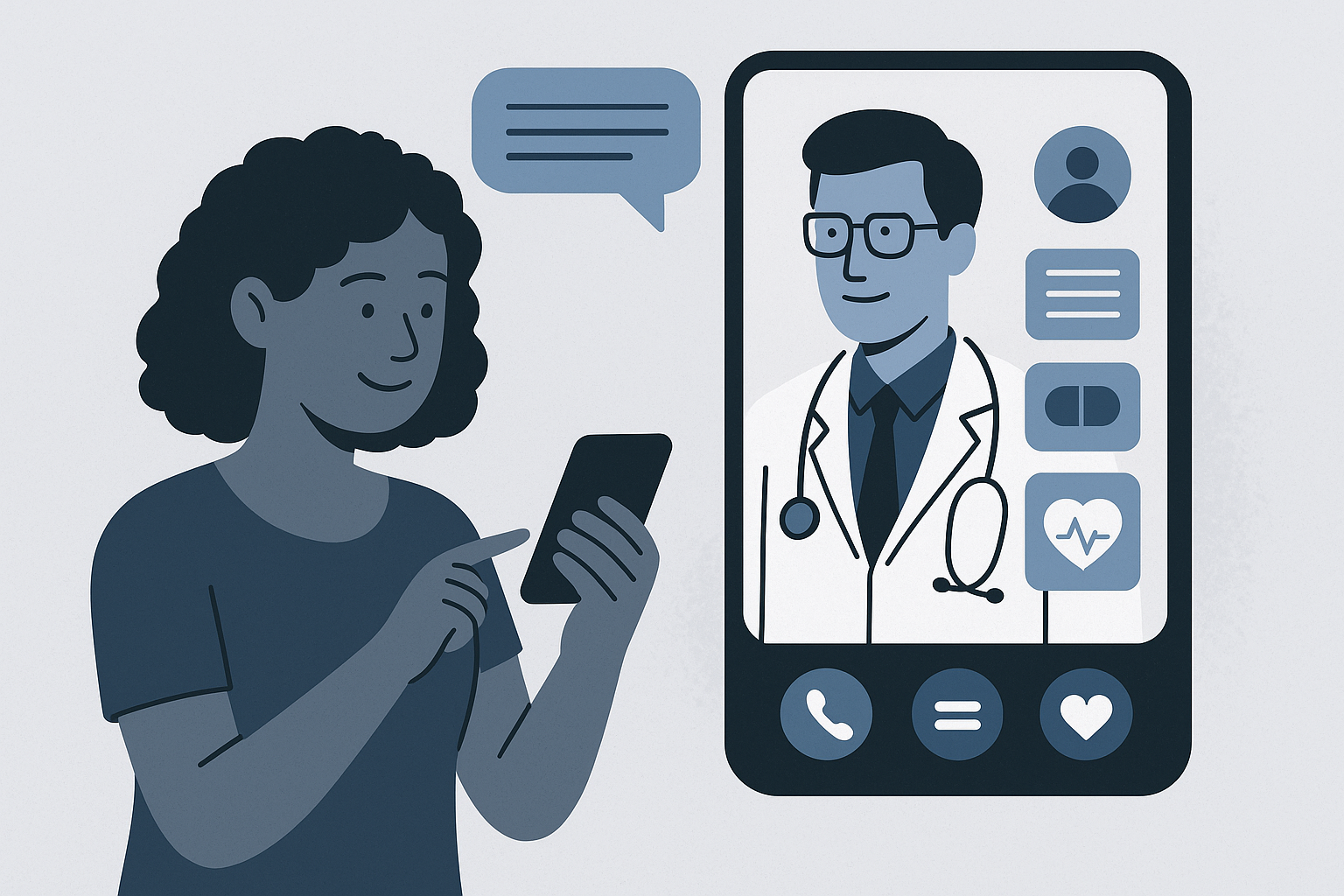
In addition to providing more efficient ways to collect health data, digital tools are leveling the playing field for healthcare access. Hospitals that incorporate telemedicine and mobile health apps into their service offerings can reach a wider audience. People can receive consultations, track health metrics and manage chronic conditions from wherever they are.
The success of healthcare digitalization will help rural communities that struggle to reach medical specialists. This generation’s attachment to their digital devices sets the most practical stage for building preventive and proactive healthcare systems.
Digital platforms allow patients to book appointments, receive lab results and discuss treatments from the comfort of home. This brings us to the point that, more than convenience, digitalization is redefining the patient experience itself.
Personalized healthcare is increasingly becoming an expectation. Physicians using integrated digital records can tailor treatments based on individual histories, lifestyle factors and genetic predispositions. Metaphor facilitates such a digitally integrated system through its self-service kiosk while providing advanced diagnostic infrastructure for robust health research.
Even patients can have access to Personal Health Records (PHRs) through companion mobile apps like the Metaphor app, giving them ownership of their health journeys in ways traditional files never could. Just imagine a reality where, with a few clicks or screen taps, you can access complete histories, vaccinations, prescriptions and lab/imaging results.
Taking it a step further, such platforms can double as educational apps, further bridging knowledge gaps and empowering patients to better understand conditions and preventative strategies. Health literacy improves when people are equipped with information that allows them to be active participants, not passive recipients, in their care.
At the clinical level, digitalization drives more informed decision-making and streamlines healthcare operations. Physicians can access dashboards aggregating lab reports, diagnostic imaging and clinical notes from multiple providers, which gives a more comprehensive view of a patient’s health.
Hospital systems can leverage big data analytics to predict resource needs and monitor outcomes. Integrating artificial intelligence tools will help spot patterns for better population health management.
Expanding Access in Low-Resource Settings Through Digitalization
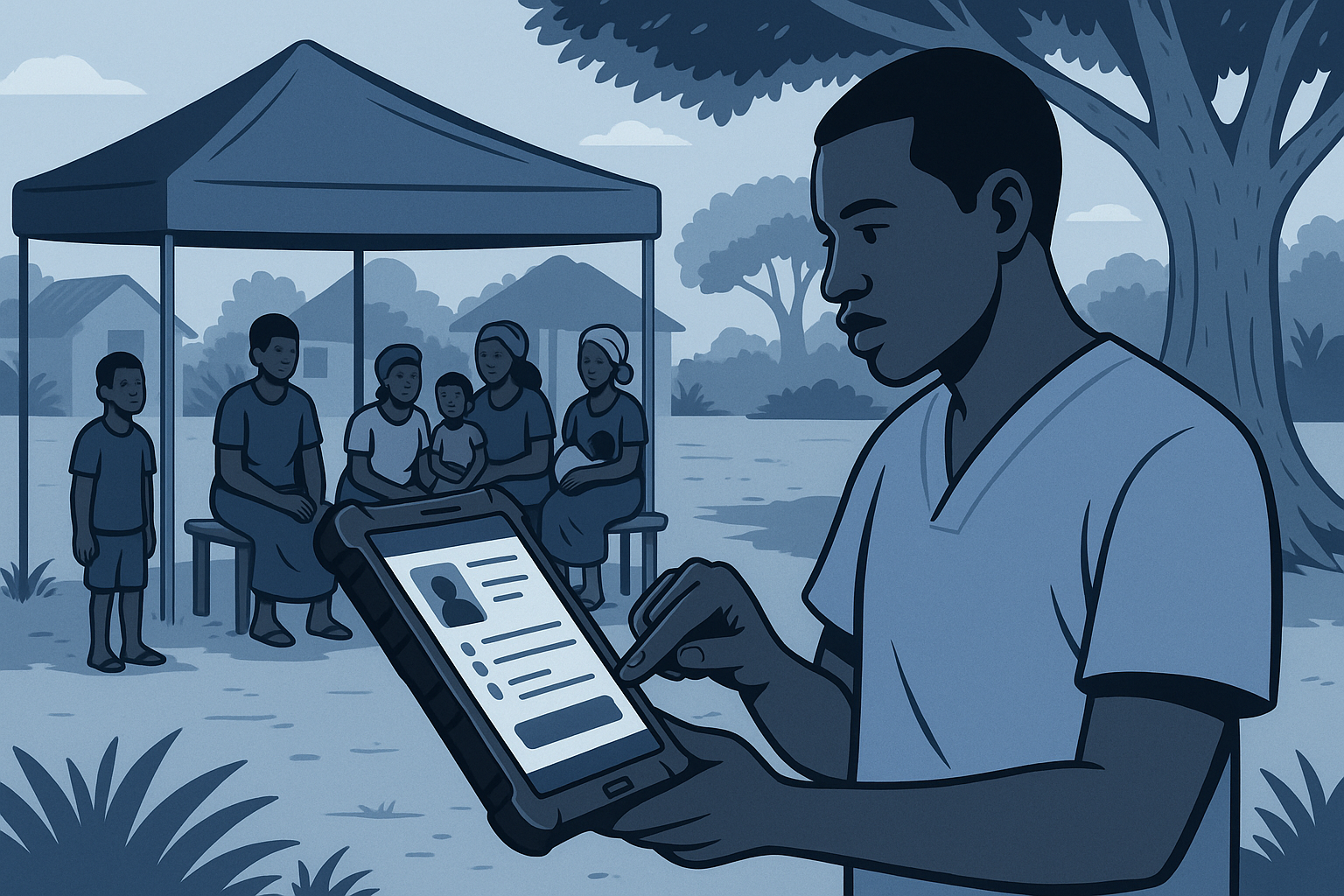
Digital transformation holds particular promise in low-resource settings, where infrastructure limitations have traditionally hampered access to care and real-time data collection. Nigeria is also not falling behind in strategic digital adoption to overcome systemic barriers.
During the COVID-19 pandemic, for example, government-backed telehealth platform NIGCOMHEALTH made virtual consultations with licensed doctors and mobile-based health services available. Health startups like LifeBank used big data and GPS tech to optimize the delivery of blood and medical supplies, while Omomi provided parents with child health tracking and immunization reminders via mobile phones (2).
Those examples show that even in challenging environments, digital platforms not only enhance care delivery but generate rich datasets that fuel epidemiological research.
Building Stronger Research Capacity Through Digitalization
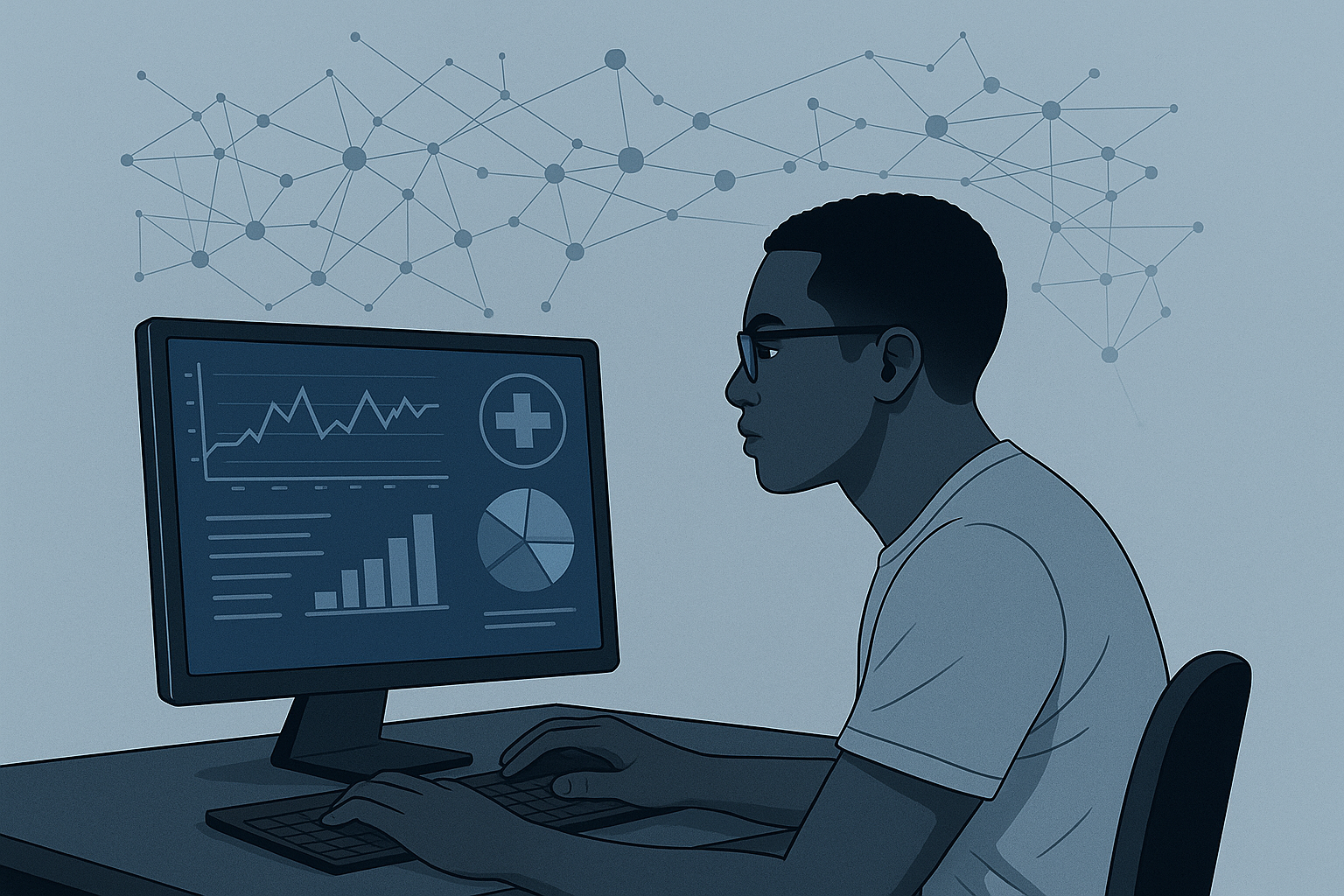
When health systems adopt digital tools, research capacity grows exponentially.
With rapid large-scale collection of clinical data, researchers can draw from longitudinal records across diverse demographics. These rich and more representative datasets can address regional health disparities and tailor interventions to real-world needs.
Any attempt to collect such data manually is impractical and prohibitively expensive. It won’t work in the race against time to churn out relevant medical solutions as healthcare advances.
Digital platforms help researchers track health outcomes over the years across thousands of individuals. They can identify important patterns in disease management and medication efficacy.
Telepathology (using digital pathology images transmitted remotely) further expands research possibilities. Hospitals without in-house specialists can now collaborate with experts globally to review biopsy results and build shared pathology databases. Eventually, this forms the backbone of AI model training.
With ongoing data flow strengthening evidence bases, clinical guidelines and national health policies will improve. Everything is geared toward the success of an interconnected healthcare sector—benefiting the patient, strengthening the hospital’s capacity and helping regulators in decision-making.
While digitalization enables faster and richer data capture, true transformation in research happens only when the different systems involved can communicate with one another. This is where interoperability standards like HL7 FHIR (Fast Healthcare Interoperability Resources) come into play.
Addressing Barriers to a Fully Digital Research Ecosystem
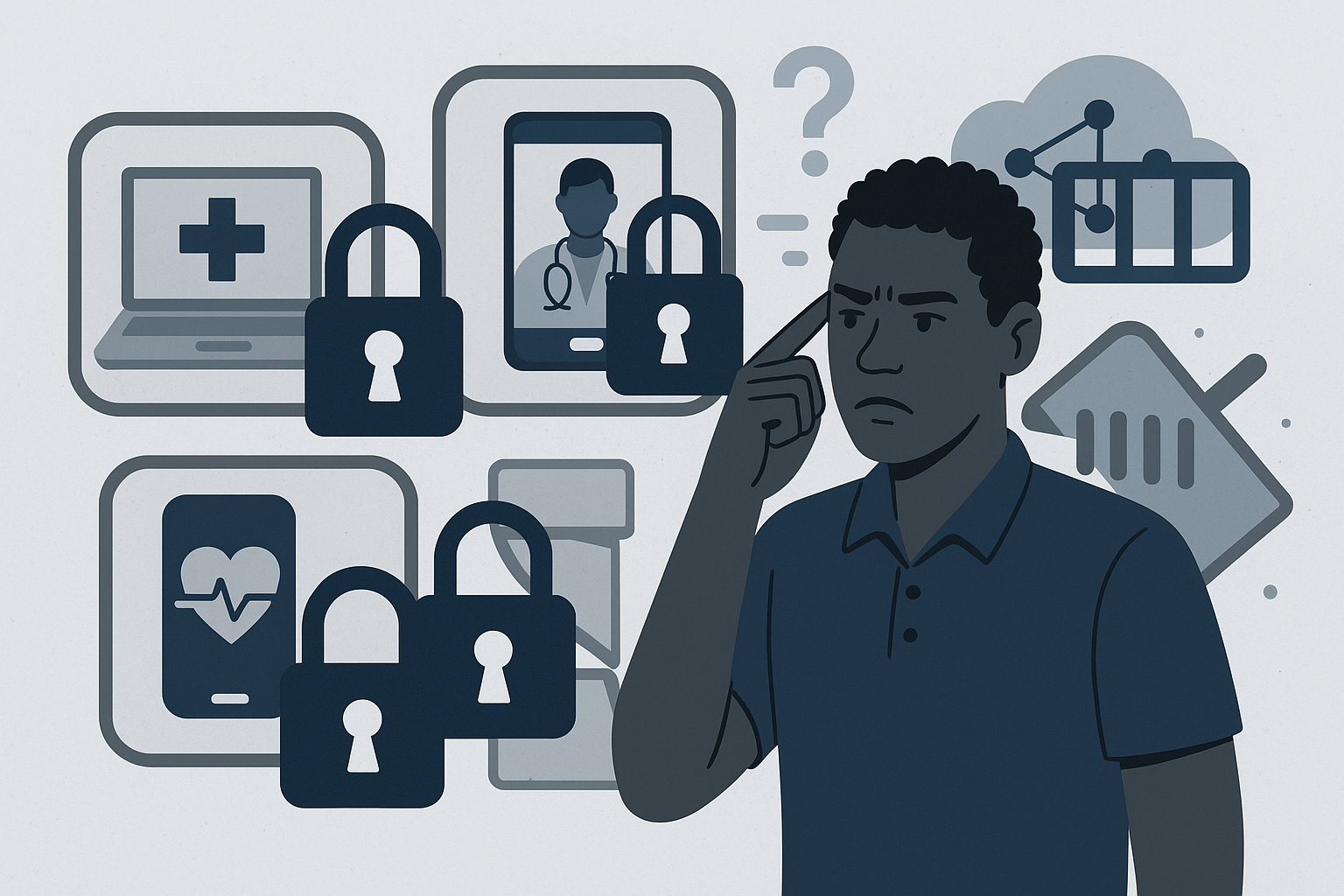
Still, moving from paper to cloud isn’t without its obstacles. Legacy systems, data privacy regulations, limited digital literacy among health workers and uneven internet infrastructure can slow the pace of this transformation. But these are solvable challenges. Below are four of the most pressing.
Data Privacy, Cybersecurity and Compliance Concerns
One of the most significant hurdles in healthcare digitalization is ensuring data privacy and cybersecurity. We are dealing with very sensitive health information and must safeguard against potential breaches and unauthorized access that can lead to identity theft, financial loss and damage to patient trust.
Achieving compliance while maintaining patient confidentiality is a constant challenge, but with the right encryption technologies and security protocols, these concerns can be addressed effectively.
Resistance to Change Among Healthcare Workers and Administrators
Nigerians love to embrace new tech, but somehow, it’s a different ball game when it means an overhaul of existing processes, especially within healthcare institutions. Hospital staff and administrators accustomed to traditional systems may hesitate to adopt digital tools due to fear of the unknown, lack of training or concerns over the reliability of new technologies.
Overcoming this resistance starts with the leadership’s willingness to embrace innovation. This will help foster comprehensive training and clear communication about the benefits of digitalization.
Skill Gaps and Need for Workforce Training
As digital tools become more integrated into healthcare, there is a growing need for workforce training. Many healthcare professionals may not be familiar with the latest technologies or the processes that facilitate their use.
To close this gap, healthcare organizations must invest in continuous education and professional development to ensure that their staff can use these tools effectively.
Ensuring Equitable Access to Digital Health Tools
Another key challenge in healthcare digitalization is ensuring that digital health tools are accessible to everyone, regardless of their socioeconomic status or geographic location. Rural and underserved communities may lack the infrastructure or financial resources to access digital health services.
Public-private partnerships and donor-backed tech initiatives must step in to support governments and healthcare institutions in modernizing their systems. The end goal is a research ecosystem that is agile, scalable and inclusive.
Data Integrity and the Role of Emerging Technologies
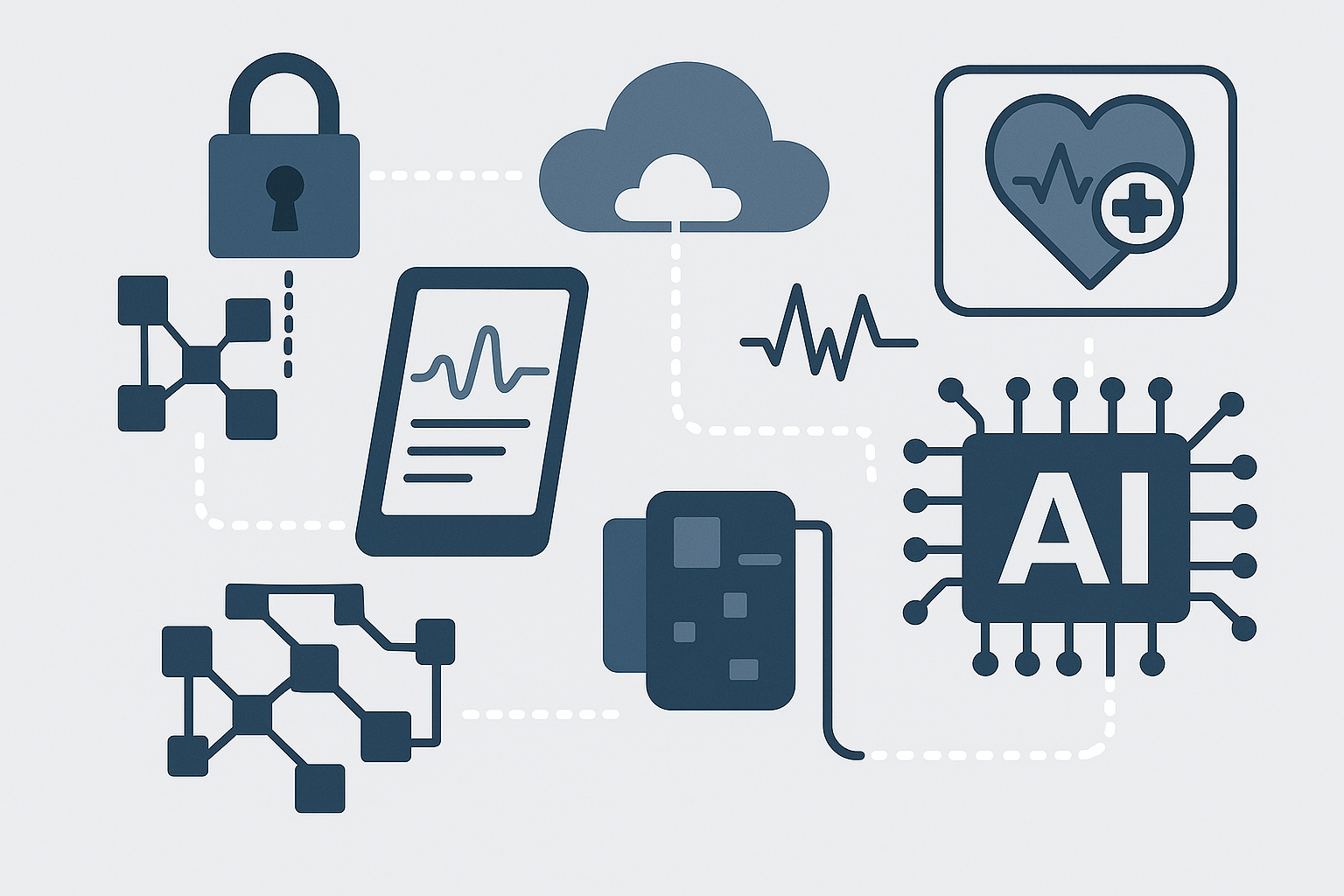
As health systems digitalize, ensuring the security and accuracy of sensitive medical data becomes the focus. Technologies like blockchain are now being explored as infrastructure tools for protecting data integrity (3). Blockchain tech fosters tamper-proof, decentralized clinical and patient-reported data that can only be accessed after predetermined, ethically compliant conditions have been met
This can be incorporated into Electronic Health Records (EHRs) and Mobile health (mHealth) tools that provide a continuous data stream for observational research and real-world evidence generation. For contract research organizations like Metaphor operating in multiple geographies, these digital ecosystems reduce operational bottlenecks.
With increased capacity and reach in collecting data, Artificial Intelligence (AI) and Machine Learning (ML) foster more accurate diagnostics and treatments. AI algorithms can analyze vast amounts of patient medical histories and test results to identify patterns and make predictions with remarkable accuracy.
The use of these tools is no longer theoretical; they’re already transforming diagnostics. AI is helping doctors detect cancer, cardiovascular conditions and neurological disorders much earlier than traditional methods (4, 5).
Also, as indicated earlier, digital health records are more relevant when they can be adapted and used across multiple data systems. HL7 FHIR (Fast Healthcare Interoperability Resources) makes that possible by allowing health data from EHRs, mHealth apps, wearables and telehealth platforms to be harmonized and exchanged seamlessly. Over 70 countries have adopted FHIR (6).
Major tech players—Apple, Google, Amazon, Microsoft—and certain EHR vendors are already embedding FHIR into their platforms so that users can share and receive their health records. Global projects like SMART on FHIR and the Vulcan initiative are bridging clinical care and research using this same architecture (6).
Leveraging AI, blockchain and the HL7 FHIR makes digitally enabled multi-center studies and global collaborations more attainable. Researchers anywhere in the world can share de-identified patient data securely to support large-scale trials.
Ultimately, harmonized data from multiple sources can be used to train machine learning models without the data ever leaving its original location—a process known as Federated Learning. Secure open-source platforms and federated learning models enable developers to build smarter algorithms and personalized medicine tools.
A Digital Future is Worth Building
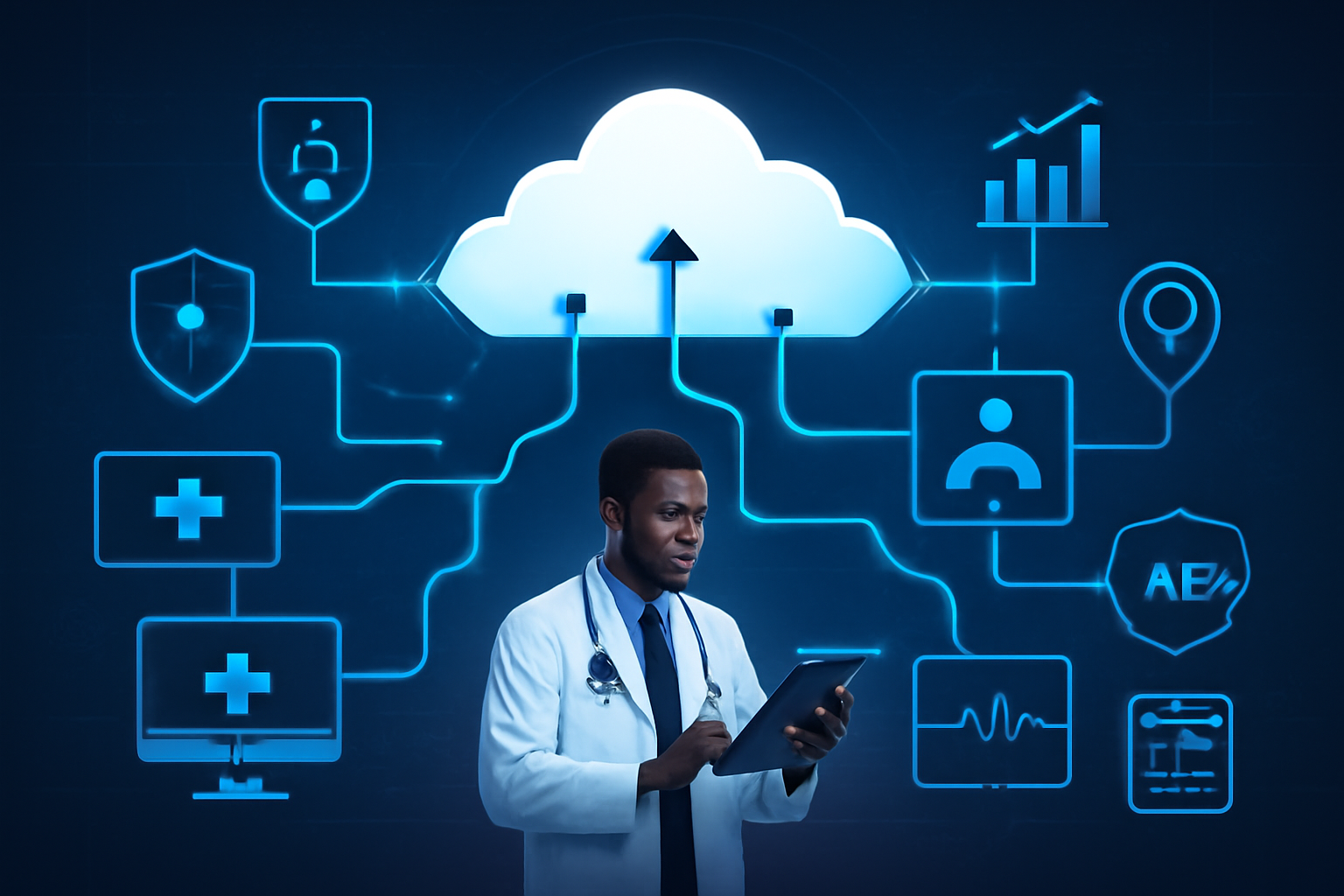
The shift from paper to cloud is a practical necessity for modern, research-ready healthcare. Technologies like EHRs, AI, blockchain and wearable devices can leapfrog traditional barriers to access while laying the foundation for groundbreaking research.
For countries like Nigeria, the opportunity is twofold: to strengthen clinical care delivery and promote homegrown, data-powered health innovation. This means building systems that are interoperable and secure, supported by forward-thinking policy, cross-sector investment and a digitally literate workforce.
This digital momentum also opens the door for large-scale, longitudinal studies that reflect the real-world experiences of diverse communities. In the race to solve health challenges, the institutions best equipped to lead will be those who treat data as infrastructure and digitalization as a long-term enabler.
The discussions now should not be whether we embrace digitalization, but how quickly and responsibly we can scale its potential. If the future of healthcare is data-driven, best believe it will be built on the cloud, powered by algorithms and shaped by those who dare to innovate. Join us at Metaphor in building this future with purpose.
References
1. https://www.medicalnewstoday.com/articles/why-does-receiving-diagnosis-endometriosis-take-so-long
2. Chika, E. U., Dike Ujunwa Precious, B., Ahuchaogu King-David, B., Gabriel Ezenri, B., Nneji Tobechukwu Okechukwu, B., Chidozie, C., & Madubugwu, R. (2024). Digital Healthcare Tools in Nigeria: Strengthening Public Health and Pandemic Preparedness-Insights from the COVID-19 Crisis. Telehealth and Medicine Today, 9(1).
3. Paul, M., Maglaras, L., Ferrag, M. A., & Almomani, I. (2023). Digitization of healthcare sector: A study on privacy and security concerns. ICT Express, 9(4), 571-588. https://doi.org/10.1016/j.icte.2023.02.007
4. Kumar, Y., Koul, A., Singla, R., & Ijaz, M. F. (2023). Artificial intelligence in disease diagnosis: a systematic literature review, synthesizing framework and future research agenda. Journal of ambient intelligence and humanized computing, 14(7), 8459-8486.
5. Sharma, D., & Kaushik, P. (2025). Applications of AI in Neurological Disease Detection—A Review of Specific Ways in Which AI Is Being Used to Detect and Diagnose Neurological Disorders, Such as Alzheimer’s and Parkinson’s. AI in Disease Detection: Advancements and Applications, 167-189.
6. Bae, S., Kim, I. K., & Yi, K. (2021). Strategy to Adopt and Deploy HL7 FHIR Standard for Healthcare Interoperability in Korea. Healthcare Informatics Research, 27(3), 173. https://doi.org/10.4258/hir.2021.27.3.173
